
From the Life of the Theatertreffen-Jury
Experiences, impressions, memories
The first members of the jury for the current edition of the festival took their first journeys to find the ten most remarkable productions of the year back in 2022. Between then and the beginning of 2025, they have seen an incredible 3,943 productions – and gathered countless experiences, impressions and memories. Now Eva Behrendt, Janis El-Bira, Valeria Heintges, Sabine Leucht, Martin Thomas Pesl, Katrin Ullmann and Sascha Westphal open their travel bags, phone records and wardrobes just enough to offer a glimpse of the many aspects of a juror’s daily life.
1
Northern Germany
Hamburg
A Personal Welcome from on Stage
I’m still a beginner and think that a two-hour cushion is enough for a journey from Zurich to Hamburg. It’s not. When I reach the theatre, I’m pumped full of adrenaline. The women from the press office kindly store my luggage in the cloakroom and let me into the auditorium. No sooner have I got to my seat, somewhat brazenly almost in the middle, than I hear the actor telling me from on stage: “You’ll need to come back again. You missed my monologue.”
Hamburg
Small Miracles Amongst Strangers
16 January 2025. This was the day that Mabel Preach’s “Opera of Hope” premiered at Kampnagel. But it was also the day when Alice Weidel made her appearance at Hamburg’s City Hall and thousands of people protested against her and the AfD’s policies and for a democratic and tolerant Germany. Which is why early on this winter evening, the streets in the centre were either closed or full to bursting. Passengers waiting at the Gurlittstraße bus stop could watch as the time the next bus was due to arrive was continually pushed back on the display board. When a young woman found out that I needed to get to a premiere at Kampnagel, she told me she lived very close by and was getting a taxi, and asked if I would like to go with her. Of course, I immediately accepted her offer with thanks. And on the way to Kampnagel a lively conversation ensued about art and life plans. When we reached our destination, my rescuer wouldn’t even accept any money for the cost of the taxi. So, for me, 16 January 2025 became a day on which my faith in the solidarity and helpfulness in our society and our time was confirmed in a wonderful way.
Schwerin
Spark of Provocation
Obviously, there were numerous theatregoers who had travelled from Berlin and elsewhere sitting in the audience. But there were also locals from Schwerin, like the couple next to me, who in course of the performance became increasingly thrilled by Florentina Holzinger’s sex positive, cannibalistic “SANCTA” mass and leaped up enthusiastically to applaud at the end. Feeling that the spark of provocation has been passed on, we exit the theatre into the early summer night. On the way into the old town we run into three drunken youths, perhaps 16 or 17 years old, growling “Ausländer raus!” to the tune of “L’Amour Toujours”. I snarl at one of them: “You ought to be ashamed of yourself!” He giggles and whispers to his companions.
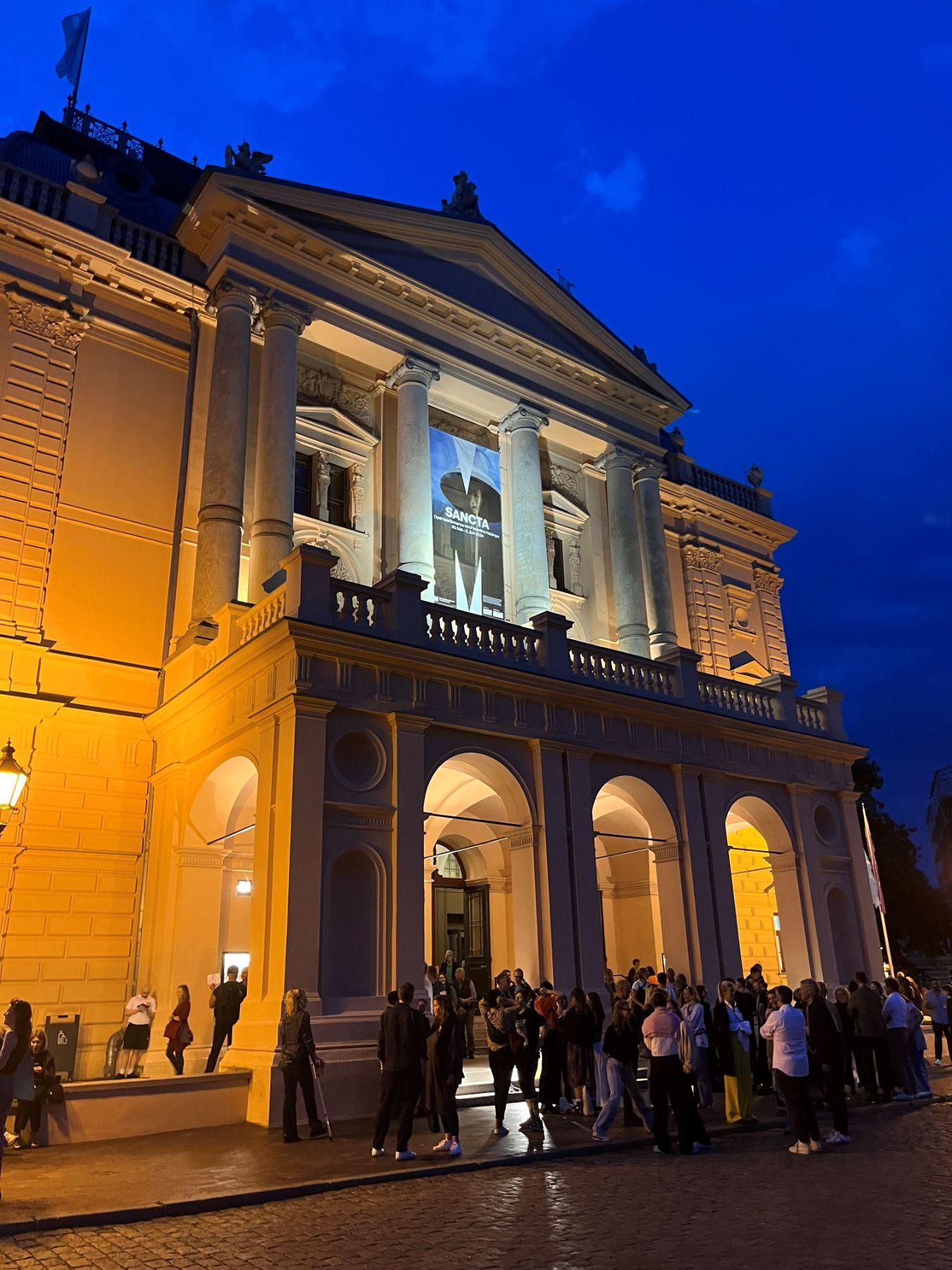
The Theatertreffen-Jury: Secretly Experts in
- Italian food and wine (2)
- board games (1)
recommended: Highlander-Games, Bochum - hotels with gyms (1)
- where to go jogging (1) – see list
- LPs (1) – see list
- second hand clothes (2) – see list
- swimming pools (1) – see list swimming pools & list open-air swimming pools
- second hand books (1)
recommended: PeterBichsel FINE BOOKS, Zurich - hotels in lower price categories (7)
- national and international train travel – often delayed (7)
1
Eastern Germany
Grünheide near Berlin / Lausanne
Midges in Brandenburg
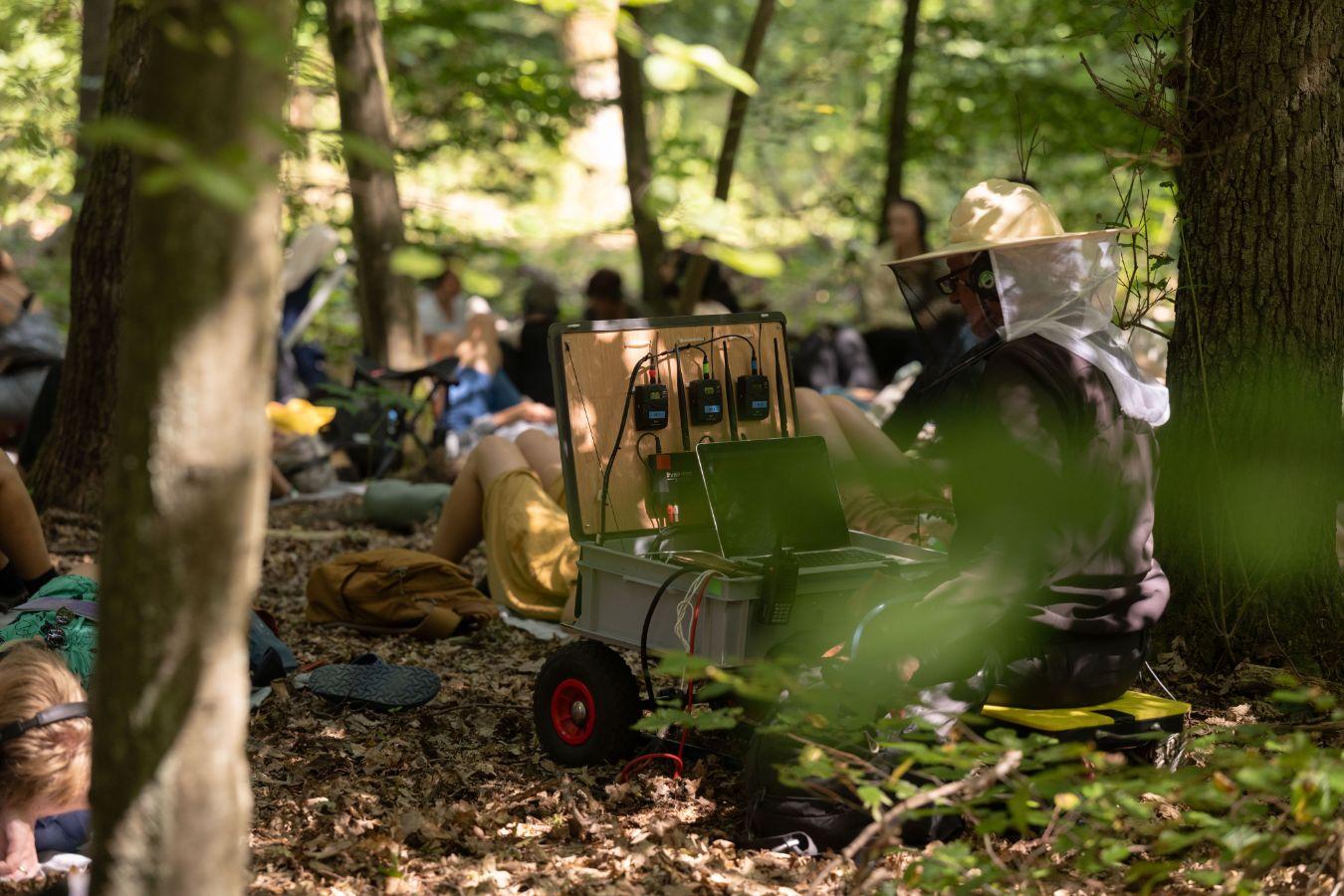
Two places and two very different experiences: a conversation between Valeria Heintges and Sascha Westphal about projects in the countryside where nature plays an extremely memorable part in the performance. (in German)
Cottbus
Art in a Diesel Power Plant
Gabriela Schulz, the Press Officer at the Staatstheater in Cottbus, has recommended that I should also visit the Brandenburgisches Landesmuseum für moderne Kunst (BLMK). The BLMK is located in a former diesel power plant by the Amtsteich, a park-like area in the city centre. A concrete sculpture is set in the partly hollowed out, newly glazed brick building, as beautiful as a cathedral; inside there is lots of space for graphics, photography and painting with East German connections. On the way there you pass some beautifully renovated tannery houses directly by the waterfront, a prime location. One of them is decorated with posters full of trashy and anti-gender slogans: even poor Bertolt Brecht gets a mention. In the window the rebellious verse: “This house is mine to live and use, despite the authorities and their protected monuments.”
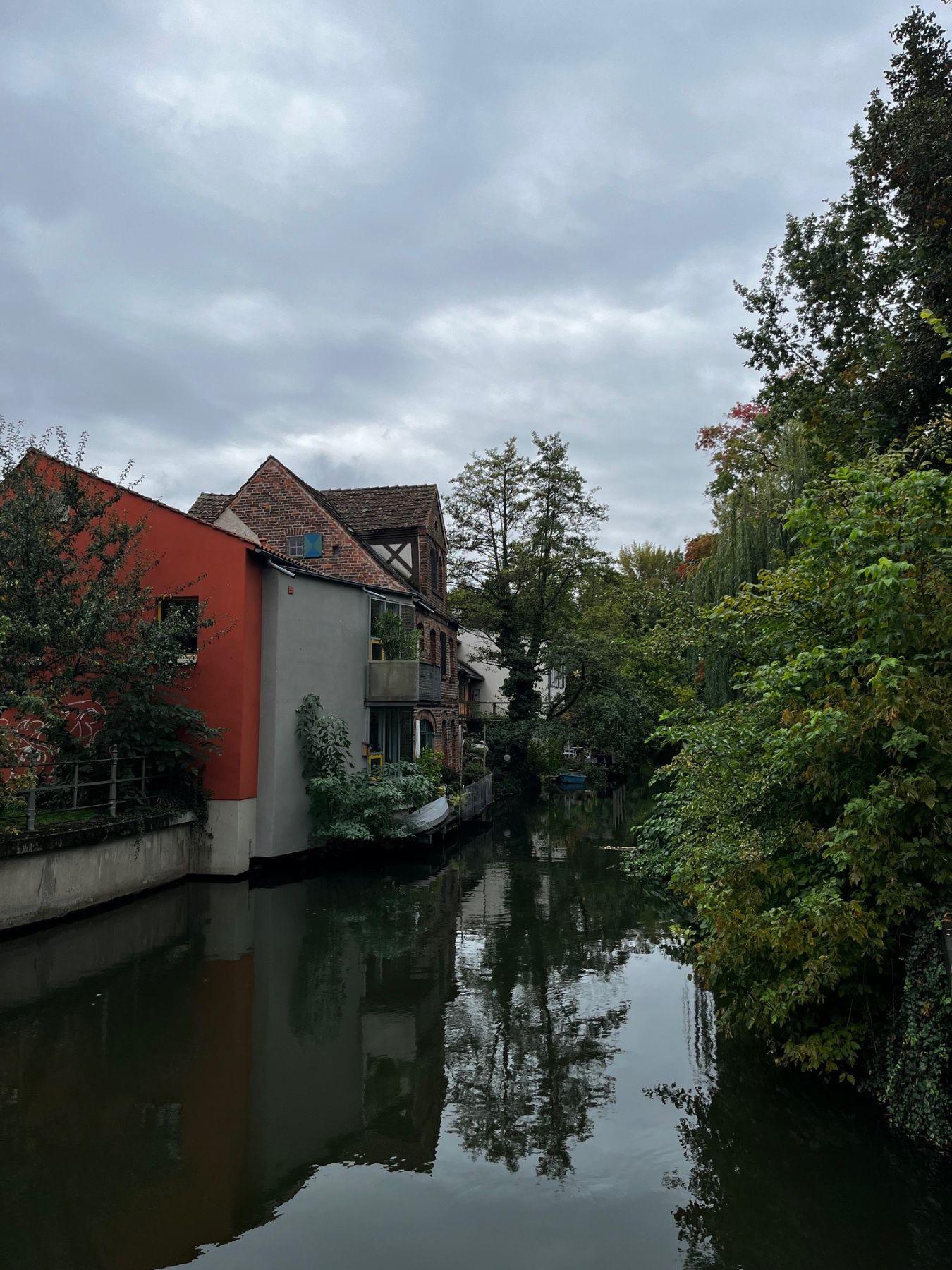
Impressions from Cottbus
Dessau
A Night in the World Heritage Site
Delitzsch, Bitterfeld-Wolfen: I’m on a regional train, jammed in between teenagers, crisp packets and rucksacks. Dark rain clouds loom over the meadows by the Elbe, above herds of sheep and chemical works. I get off at Dessau. The glass facade of the Bauhaus is already sparkling! The sky might still be grey but the weather and the world both suddenly feel much lighter. I am bursting with anticipation: “Stay in the World Heritage Site – sleep like the Bauhaus artists.” My room in the historic Atelierhaus is a large, bright space of around 20 square metres, with a bed, wash basin and cantilever chairs. Bare white walls and a linoleum floor. Everything is beautifully shaped, practical and plain in classic Bauhaus style. For dinner I order a “Bauhaus Salad”. Why is it called that, I ask the server, basking in a haze of Gropius worship and hoping there is some underlying culinary rationale. He responds by mumbling “the cheese is missing” and disappears into the kitchen. Later I pull the woollen blanket right up to my chin. Marvellous! A night in the World Heritage Site! Loud snores boom out from the neighbouring room.
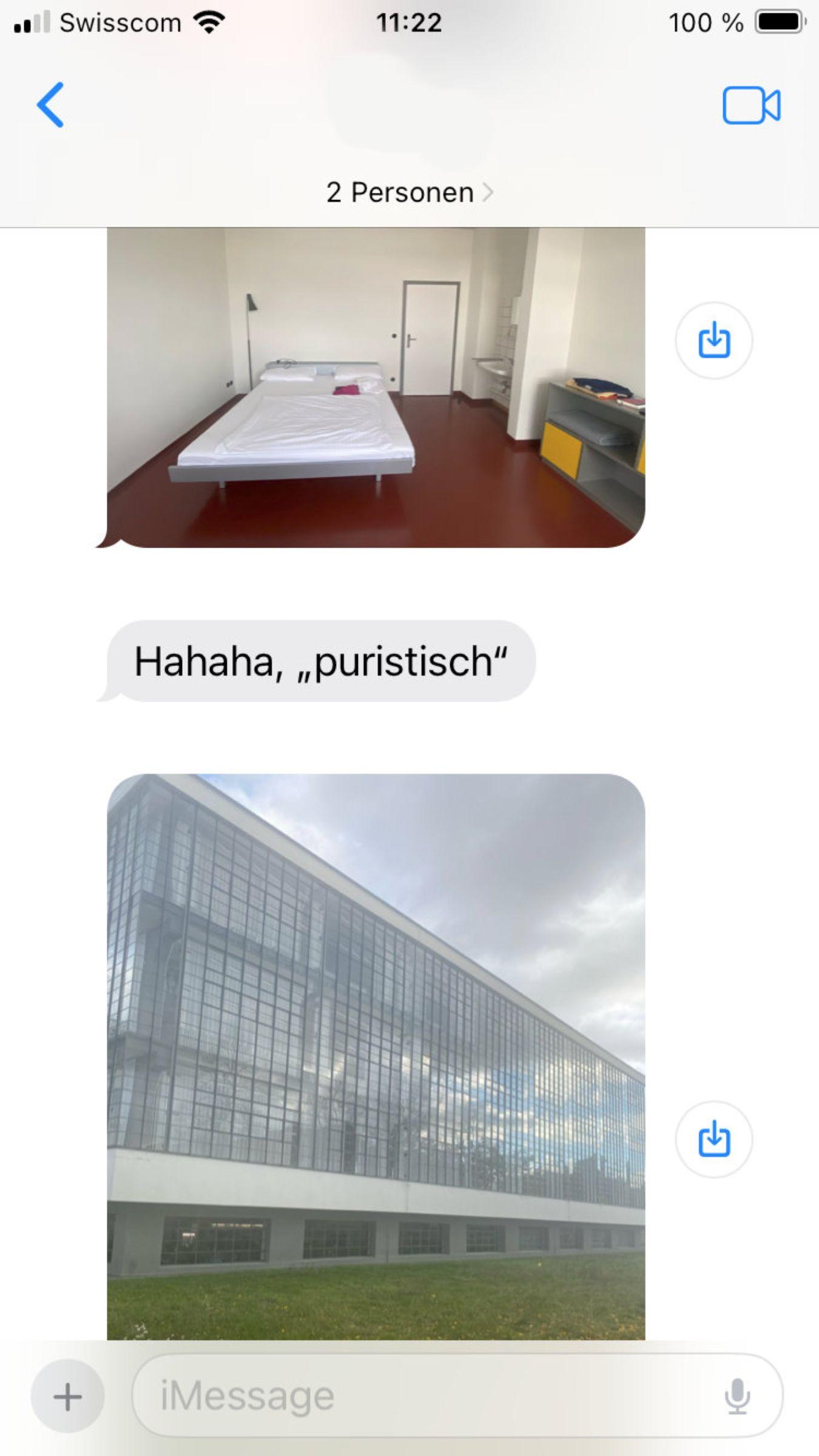
Jena
Is the Neon Sending Me a Sign?
As Theatertreffen-jurors, we cast a vote after every performance: “YES – should be invited,” or “NO – should not be invited.” A colleague had given “Die Hundekot-Attacke” at Theaterhaus Jena a positive vote so I went along. Jena used to have a much bigger theatre. It was demolished after reunification. Where its auditorium once was, there is now a giant public square. The current theatre just occupies the area that used to be the stage. It was the depths of winter and already dark when I approached the entrance across the square. Bright neon lettering told me I was in the right place: this was THEATERHAUS JENA. Although the E and the N in JENA weren’t working. Was that really true? Or did the Theaterhaus want to welcome the travelling juror by suggesting how he should vote? It worked: “Die Hundekot-Attacke” was invited to the 2024 Theatertreffen.
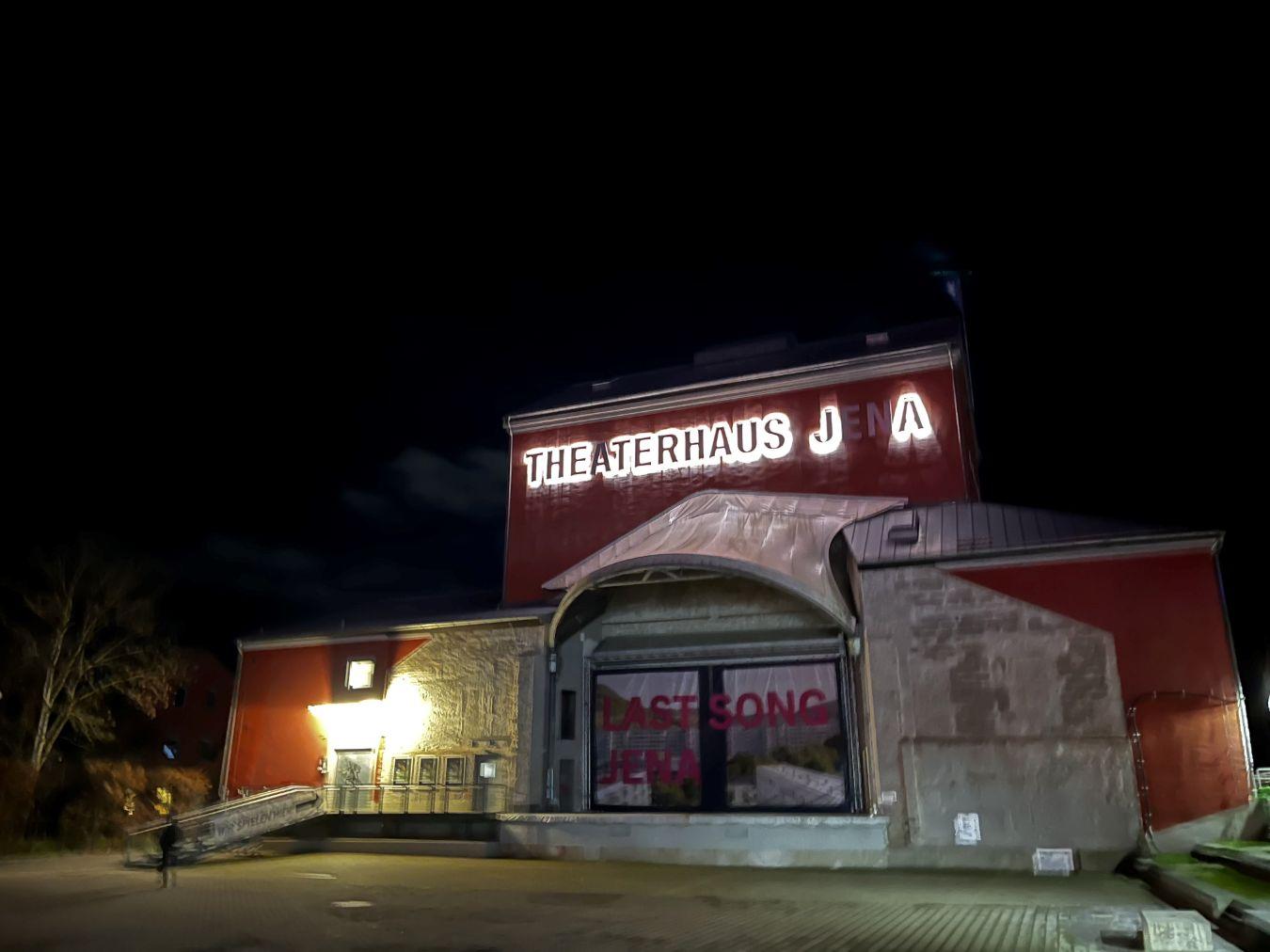
Weißwasser
Sightseeing with Slag Heaps
Before Shakespeare in the Telux glass factory, there is still time for sightseeing in the ice hockey stronghold of Weißwasser/Oberlausitz, where Lausitzer glass used to be manufactured back in GDR times. Heading south on Bautzener Straße you reach the “Turm am Schweren Berg”. From here there is a view of the Nochten opencast mine and one of Germany’s largest slag heaps, while the smoking chimneys of the Boxberg and Schwarze Pumpe power plants rise into the air on the horizon. A giant excavator moves through the sandpit in the distance while at our feet all sorts of weeds burst forth from the exploited ground. In the east, the “restoration of a prime landscape” has already begun, while to the west mining continues.
Recommended Places to go Jogging
- Bochum, Stadtpark – a surprising number of villas
- Frankfurt, banks of the Main – at its most urban at the foot of the European Central Bank (EZB)
- Hamburg, Außenalster – always a little too busy
- Munich, banks of the Isar – solid and respectable
- Vienna – Danube and bunker tour
1
Southern Germany
Munich / Cologne
Alster or Isar?
Fun facts from the (post-)pandemic: on the way to the Hauptbahnhof in Cologne, where the train is supposed to take me to Hamburg, a colleague is already gossiping about the performance being cancelled, while the press office of the theatre concerned is confident: no, the performance will go ahead. What should I do? The train leaves in quarter of an hour. It’s leaving in ten minutes, eight, seven … any time now! If I wait for the next one, I won’t arrive in time. And Munich, where I live, is unfortunately in completely the opposite direction, I think while I’m still on the edge of the platform. Only a quick crisis contact between the Theatertreffen leadership and the theatre management brings a solution at the final second: Don’t get the train! Go home! Where you can watch what feels like the 123rd performance recording.
Munich
In the Porn Hotel
It’s Oktoberfest. With hotel prices to match. I end up in a hotel in Sendling. From the outside it looks unspectacular and boring, but what the TV shows me when I enter the room is intended to be quite spectacular. However, I don’t want to watch hardcore porn, not in the afternoon, and not at any other time. But the TV seems to have a mind of its own on this matter. I wake up in the middle of the night, confused because I can’t work out what the noise I’m hearing is. It takes ages for me to realise: the TV is on again. Showing the same programme as before. Even now I still wonder: how could this happen? With a pay-per-view channel? Did the person in the next room manage to switch on my screen instead of theirs? A mystery.
Recommended Record Stores
for North, East, South and West
- Hamburg: Plattenrille: Has everything. Could be 100,000 records in all genres, meticulously catalogued. Inexhaustible.
- Berlin: The Record Store: A feelgood vibe. No rubbish, lots of early jazz cuts and quality audiophile re-issues. The boss makes excellent recommendations.
- Vienna: Alt & Neu Records: Since Julie Delpy and Ethan Hawke stopped by here in “Before Sunrise”, this legendary Viennese store now seems to feature in every Japanese Lonely Planet guide. The boss Frau Teuchtler takes it all in her stride and welcomes even the selfie tourists.
- Essen: Vinyl Lounge: 40 different recordings of Beethoven’s violin concerto? No problem. This classical specialist likes to play high end stuff in the store and puts all the records it buys through a washing machine. The espresso is on the house.
1
Western Germany
Frankfurt am Main
Green Zone in the Hotel
Because I had to leave very early in the morning, I had organised a hotel close to the station. It was incredibly cheap. When I got back there after a long night in the theatre, I realised why. Not many people seemed to check in here alone and certainly not to sleep. The latter became evident when I tried to turn off the bright green strip of light that ran horizontally across three walls of the room. I spent easily quarter of an hour pushing all the switches and buttons I could find but it was no use: the light stayed on. Though I could change its colour. To red.
Havixbeck near Münster
Burg Hülshoff – “Die Judenbuche”
It’s not far from Münster to Havixbeck. But at weekends public transport leaves you stranded. I take a taxi to Hülshoff Castle. This is where Rimini Protokoll are showing “16 Scenes for a Forest”, an installation about “Die Judenbuche”. After a couple of kilometres, the driver asks me if I’m going to a wedding and whether we’ve come to the right place. A lone wind turbine turns on the horizon. At Hülshoff Castle, eight hunting hides can be glimpsed through the forest. I climb up, look at the screen across which lines of Droste-Hülshoff are drifting, and sometimes through a telescope hanging on the balustrade. “Look at that show-off!” booms from a loudspeaker, while a cough echoes from another. “There he is, Friedrich Mergel,” it shouts. From somewhere comes the answer: “That’s me.” An uncanny blend of a radio play and nature-watching. Ideally with other people watching from the other hides. Today there are none. Instead, there is a faded leaf, a fluttering pigeon, birdsong. I look for them among the tall beech trees. Glass shatters and there is a gunshot. The installation finishes and a sense of unease remains. The sun’s last rays break on the milky glass panes of the bus stop. I call a taxi.
Wuppertal
All There – But Not in View
I had never been to Wuppertal, and because I went on the spur of the moment, I could only stay a few hours. Luckily, I was able to see Tanztheater Wuppertal and travel on the Schwebebahn. The two famous things that I, as an ignorant Austrian, knew about the city. My colleagues Eva Behrendt and Janis El-Bira came too, as the photo shows (even if it’s not possible to make out the Schwebebahn, unfortunately).
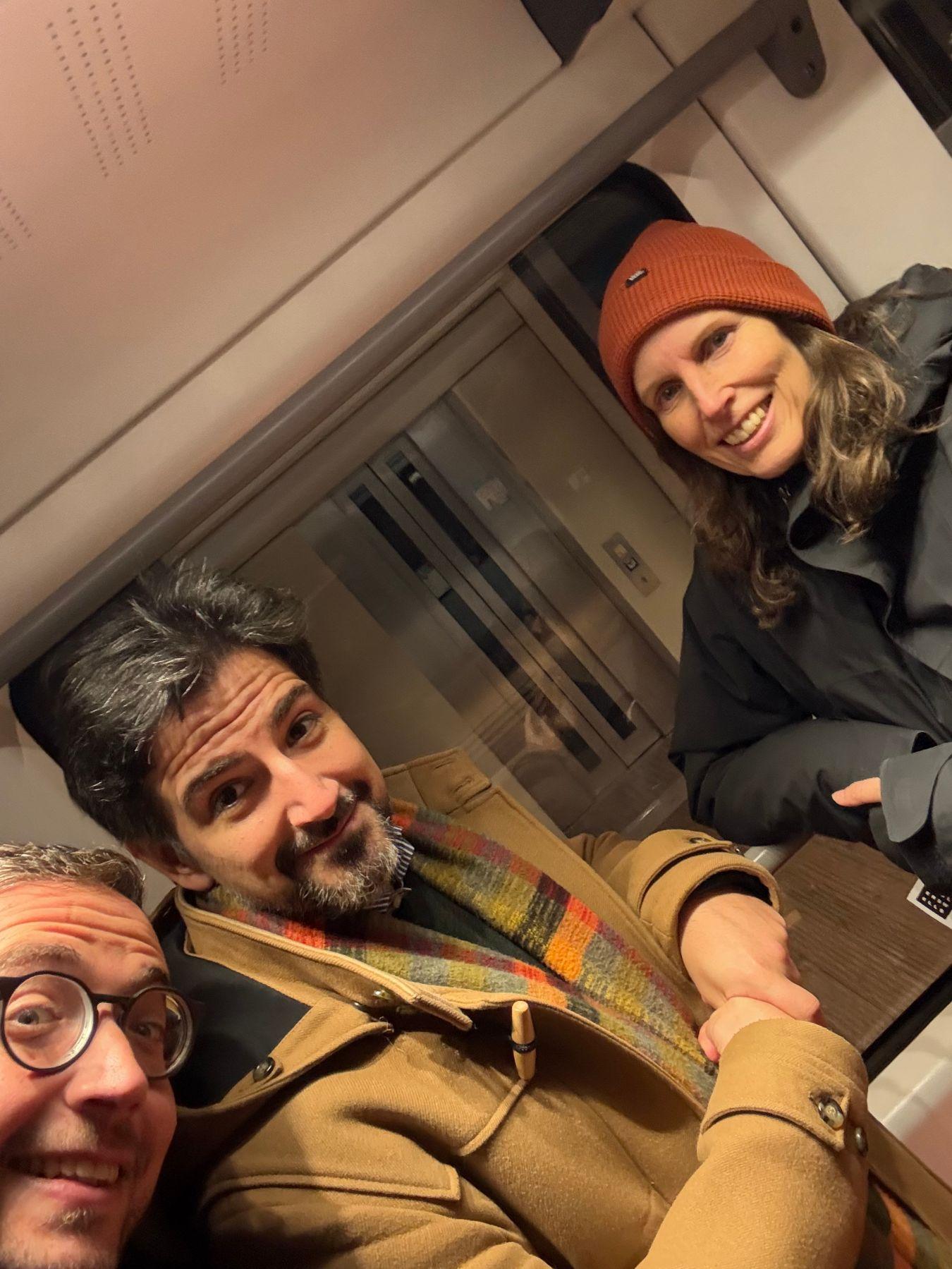
Recommended Second Hand Clothing Stores
1
Austria
Großpesendorf
Art in the Middle of Nowhere
Theatre can take place anywhere – and I find it most exciting when it happens in places where people are not used to finding it. In the autumn of 2024, a series of performances took place in Styria of a biographical play about the performance artist Marina Abramović. I took a bus from the small town where my bed-and-breakfast was to a stop near a roundabout, trudged through some grass behind a glass building – some kind of joinery workshop – where I was given a cushion and told the performance would last over two hours without an interval. To enter the building, we then – in homage to one of Abramović’s works – had to force our way one-by-one between two naked performers. 20 people experienced an elaborate encounter with performance art. In absolutely the middle of nowhere.
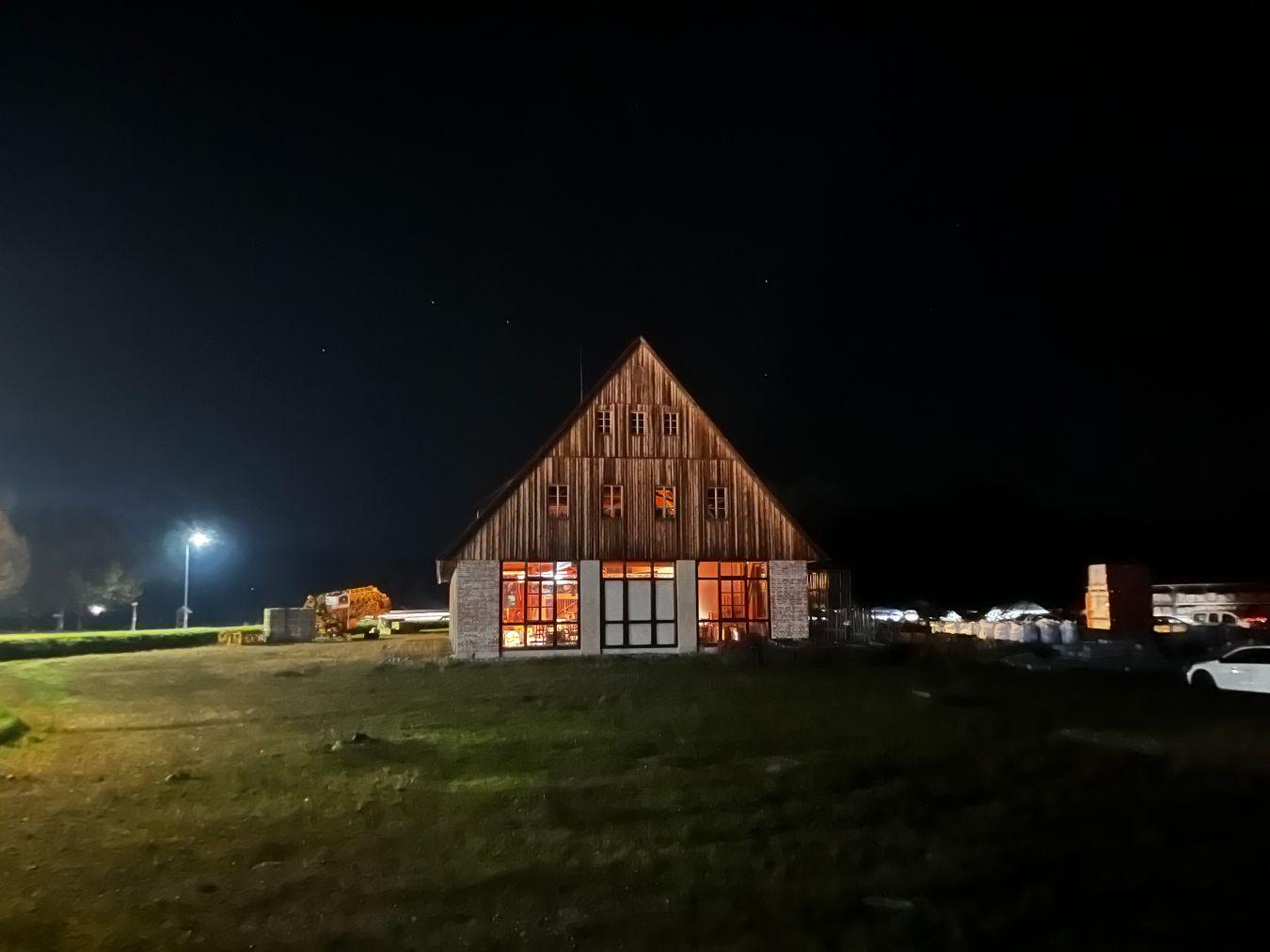
Vienna
At Home in Hotels
I don’t want to lament or polemicise. Of course, our journeys usually take us Theatertreffen jurors to more or less anonymous hotel chains. This does have its advantages. For one thing, I know almost exactly what awaits me. And often they even offer a high level of comfort. Only I do not experience a feeling of being known there. I remain one guest among many and therefore largely anonymous. This is why it is so gratifying to stay occasionally in smaller, owner-run hotels, such as the “Beethoven” in Vienna. Only there will a waiter in the breakfast room greet me with the words: “Welcome home!” And immediately I have that special feeling of being at home that can only be felt when travelling.
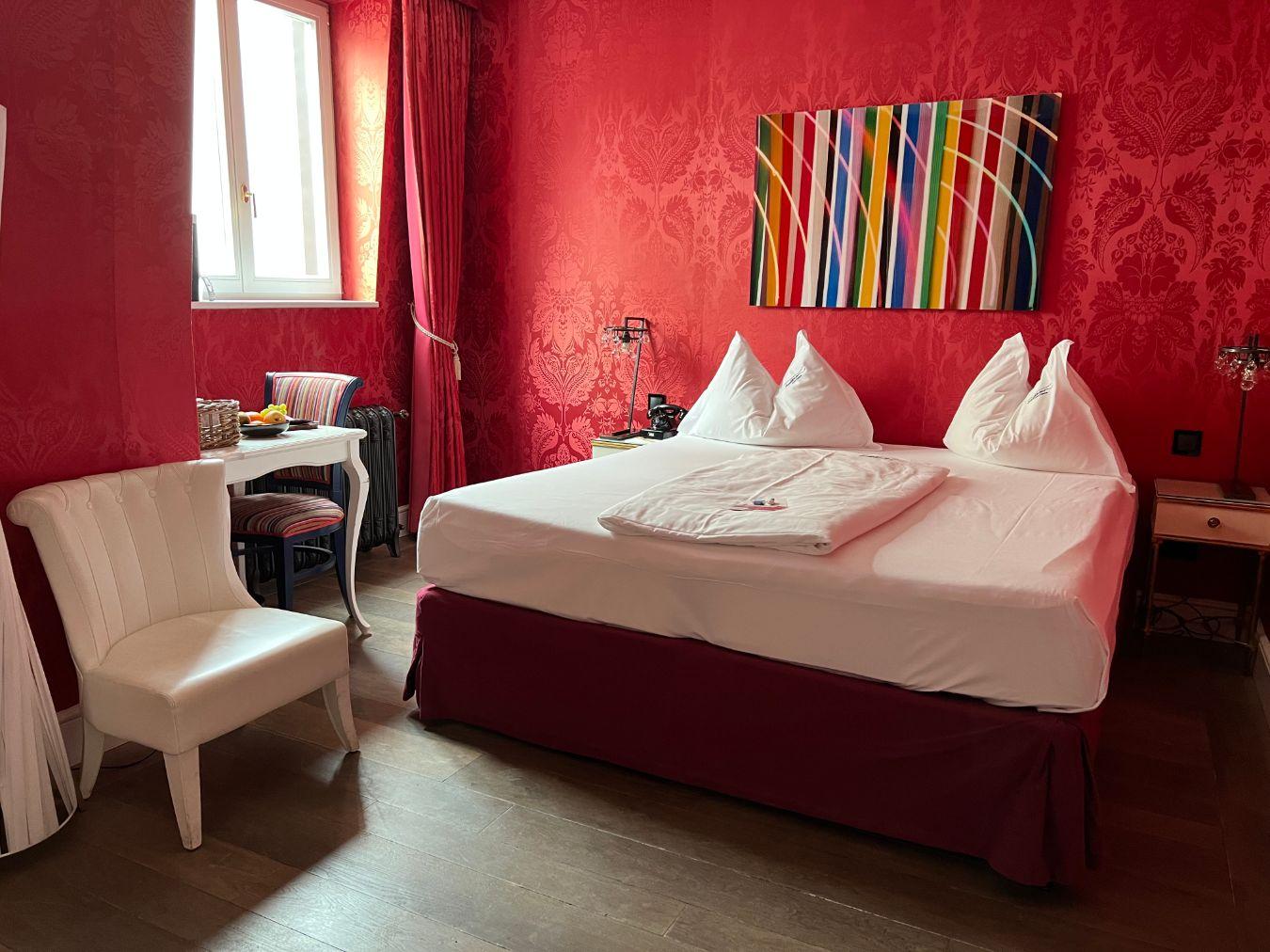
1
Switzerland
Zurich
From Zic Zac Rock to Minimalism
When I was 17, I took part in a sort of exchange trip to Zürich with a group from my school in Vienna. We stayed in an unforgettable hotel in the city centre, the Zic Zac Rock Hotel: brightly coloured walls, every room was named after a rock star, and everything was decorated with photos and records. 25 years later, as a Theatertreffen-juror, I asked Schauspielhaus Zürich to organise a room for the night. The hotel – elegantly minimalist both inside and out – was located in the city centre. I had some time after checking in and before the performance, so I went and had a look for the cool hotel that we’d had the run of as teenagers. It had to be somewhere nearby. I searched and searched, without success. Finally, I turned to the last resort of the lost: Google Maps led me to the address of the Zic Zac Rock Hotel, while informing me that it was “permanently closed.” I looked up – and was standing in front of my hotel for the night.
Recommended Open-Air Swimming Pools
1
On the Move
Frankfurt am Main / Everywhere
Lost and …
I’ve lost count how many times in my first year on the jury alone I arrived at my destination and suddenly couldn’t find the plug for my mobile phone or the charging cable or they were both in my rucksack but for some unfathomable reason they wouldn’t fit together. This usually happened in Frankfurt am Main, which is why I can now find every mobile phone shop there between the station and the theatre blindfold. But in Zurich, Hamburg, Mannheim and Karlsruhe … I also know exactly where the Apple Store is (or isn’t) where I can spend the fee I still haven’t earned for seeing the performance.
At this point my heartfelt thanks go to all the hotels that forwarded the cables I had overlooked on my departure and the e-book that had slipped down between the bed and the wall!
Now at least I have the electronics under control and the only reminder of my flat and long learning curve is the overflowing basket of cables at home. However, someone in Wiesbaden has been going around this winter wearing my absolute favourite scarf of all time.
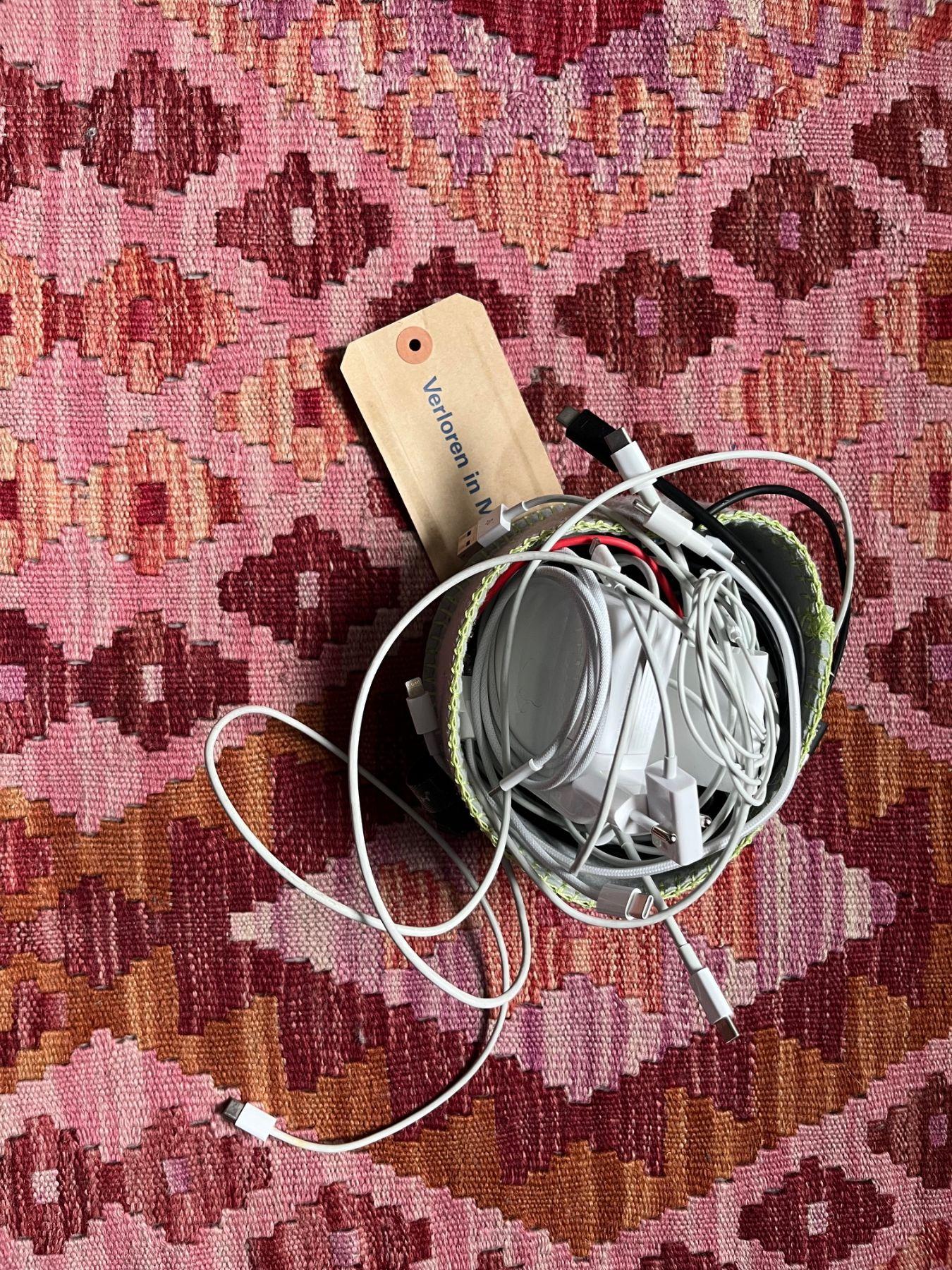
IC Mainz–Bochum
Beer or Gin?
In my first year I was responsible for southern Germany as well as Austria, so I quickly racked up a whole load of BahnBonus status points. One of the benefits was a limited number of vouchers for free drinks on board. Travelling on the InterCity from Mainz to Bochum, the Bordbistro barman announces over the tannoy that we need to be quick as he is getting off soon and only has two beers left. Travelling with a friend, I dash along and secure the last two little bottles. When I produce my voucher, the barman shrugs his shoulders and says: “Are you sure you don’t want to keep that? A voucher is worth one drink and the ICEs have gin and tonic.
Karlsruhe / Magdeburg / Salzburg / Vienna
New Purchases from Everywhere
Before Christmas I am in Karlsruhe. At the coldest time of year. On the way back I know: the map of Karlsruhe is truly spectacular. And they have a shop there that specialises in socks. I bought the thickest and warmest socks in my wardrobe there. I have another pair from Salzburg, a shirt from a Hungarian-Austrian shop in the Josefstadt in Vienna and a skirt from Magdeburg. My wardrobe is a beautiful story of my travels. But the railways have also contributed new purchases: a rucksack cost me 1,750 points and a Tefal pan 3,500. The rest went on coffee.
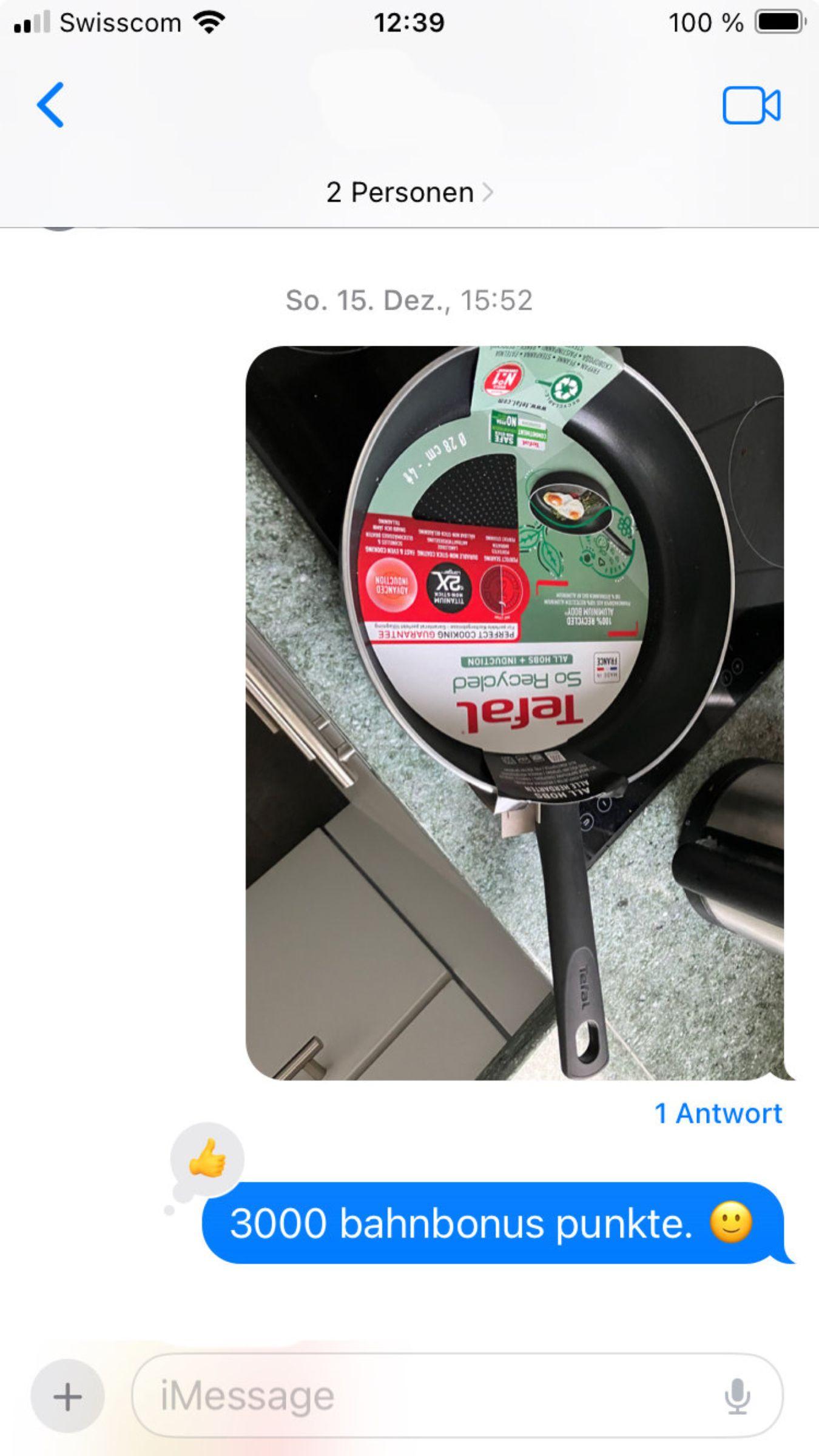
Everywhere
Lonely Laughter
In Ruben Östlund’s satire on cruises and the wealthy “Triangle of Sadness”, there is a scene in which the young model couple Carl and Yaya have just moved into their luxury cabin and the handsome Carl, played by Harris Dickinson, takes forever pressing every conceivable light switch in an effort to turn the bedside light on or off. I forget which. But I do remember that I laughed a lot at that moment, I was the one laughing loudest and loneliest in the whole cinema. Because what makes it funny is something that only Theatertreffen jurors and other modern business travellers can testify: every place to stay seems to have its own lighting mysteries and switching strategies. Every light source close to the bed hides its button, lever or cord to switch it on or off somewhere different. Ever since I once had to spend an entire night hiding my head under the pillow, I always pack a sleep mask with me.
Digitally Connected
Please share
Photos: © private










